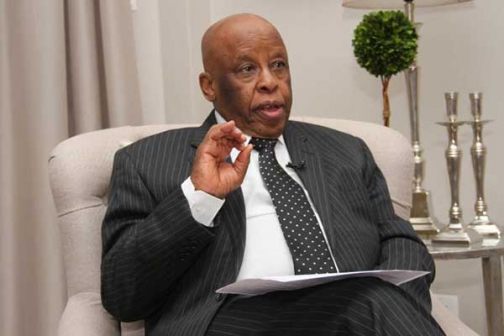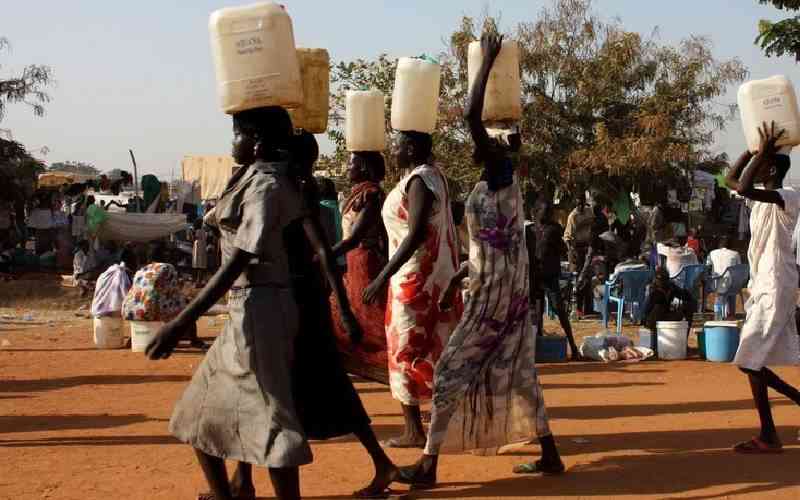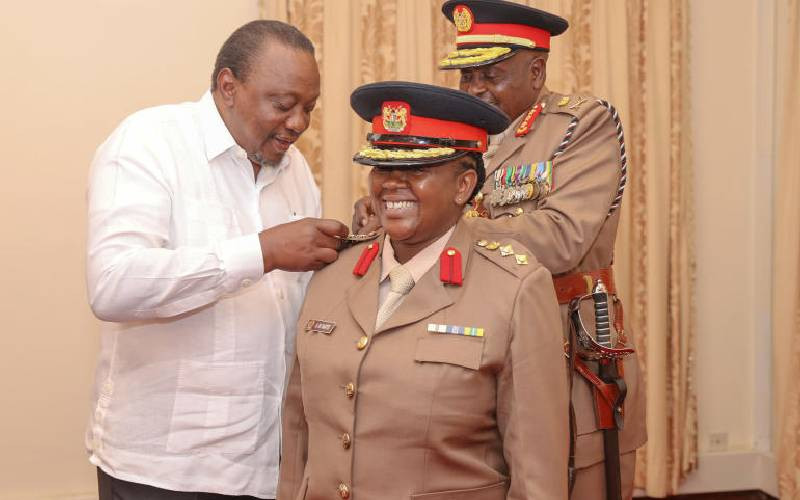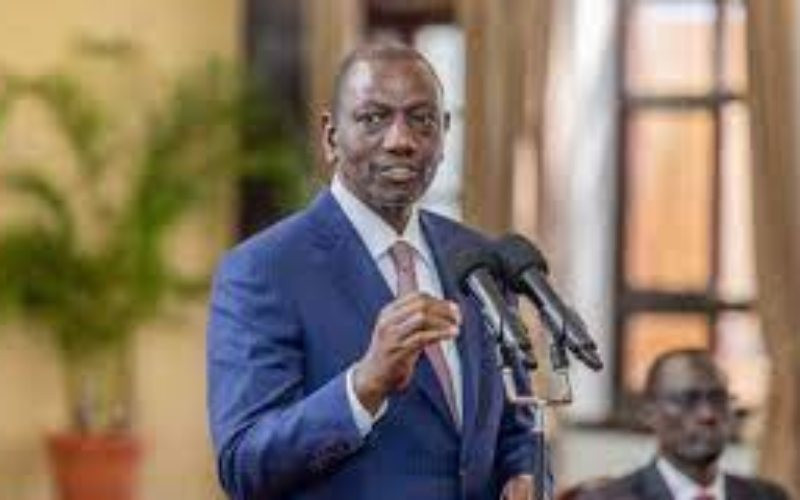His face was glowing and his eyes were glittering when we met him at Palacina Hotel last week.
Retired Bostwana President Festus Mogae’s smile was not the characteristic “half-moon” that men of power are wont to have.
And his handshake and chuckles were not fictitious. Everything about him was unpretentious.
Despite his current posting as the chair of South Sudan’s Joint Monitoring and Evaluation Commission (JMEC), the man did not hold back anything about anyone.
He shot straight from the hip on the two warring figureheads in the South Sudan conflict, and spoke openly about the African Presidents who gave him the job.
With incredible deftness of a retired statesman, he laces his frank talk with humour and laughter.
“How would I know... I was an African President and I did not hang on for long,” he says when we seek his perspective on why African presidents tend to hang on to their positions well past their sell-by dates.
We wouldn’t let him get away with it easily, so we pressed on: “Well, it’s not about you. Many more of your colleagues tend to hang on.”
He loosens up, scratches his clean-shaven head and then gets down to the matter with unmistakable seriousness.
“I think it’s unfortunate to the extent that it happens, it really doesn’t show us in the best light. It’s most regrettable. They shouldn’t be doing that. You know everybody can do their best, including sportsmen — boxers, footballers and so on — but there comes a time they decline.
“So many African leaders do well but when they overstay then the quality of their governance deteriorates, and in most cases they end up spoiling their good records,” he says.
Comfort in retirement
Mogae says he found great comfort and enjoyment in retirement. After relinquishing power in 2008, he won the prestigious Mo Ibrahim Prize for Achievement in African Leadership.
He says he doesn’t miss any single aspect of the presidency other than aerial surveillance of his desert country from a chopper.
“Do I miss anything? Maybe flying in a helicopter, that’s all I miss. The rest I don’t miss. I like my life as it is now,” he says with a radiant smile that makes the wrinkles on his face more distinctive.
Stay informed. Subscribe to our newsletter
With a light touch, he adds: “The only other thing I miss is that the people of South Sudan don’t listen to me. If they did, we wouldn’t be talking about fighting. We would be arguing on how to improve agricultural production, education, training and so on.
“You know, I come from a desert country and for me, countries such as yours and South Sudan are paradise for development from the perspective of my training as a development economist," he says.
Mogae says he was enjoying his retirement when South Sudan happened.
He was and continues to be involved in charity through MasterCard Foundation which sponsors, among others, the Wings To Fly education programme that is locally associated with Equity Bank.
Besides charity, Mogae is deeply involved in HIV/AIDS advocacy and improvement of African leadership through the Mo Ibrahim Foundation.
“I enjoy doing these things and travelling. It’s very interesting. I don’t have to make final decisions anymore and therefore compared to my life before, I enjoy that, contributing,” he says.
The annual Mo Ibrahim Award has only attracted five winners in 10 years.
Nelson Mandela (honorary 2007), Mozambique’s Joachim Chisano (2007), Mogae (2008), Cape Verde’s Pedro Pires (2011) and Namibia’s Hifikepunye Pohamba (2014). There were no winners in 2009, 2010, 2012, 2013 and 2015 as no one was found worthy of it.
“I can tell you, our South Sudanese leaders are not likely to win the prize anytime soon. But other leaders will. It doesn’t happen every year but it does happen. It may happen this year for instance,” he says.
He did not appear to have a very good impression of the two protagonists — President Salva Kiir and former Vice President Riek Machar — in the South Sudan mess.
Still, he sounded very hopeful that Africa’s youngest nation will have the capacity to wriggle itself from the shame of violence.
He says that Kiir and Machar appear determined to defeat each other “on the battlefield than to politically accommodate each other”.
“That’s why they say the peace agreement was imposed on them. But it had to be. How could they be allowed to kill each other the way they were doing? I think IGAD did well and they have to continue to apply pressure on South Sudan to make peace because they are destroying their country,” he says.
He then tells of a common joke that although the US army is 20 times the size of South Sudanese army, the latter has twice as many generals in its ranks than the former.
“It’s a joke, some may say a cynical joke but it’s not far from the truth. And as if that’s not enough, there are so many guns in the wrong hands over there. Someday, when peace will have come, it will be of priority to reduce the number of guns in the hands of ordinary citizens who kill each other whenever they quarrel,” he says.
Mogae describes the situation in South Sudan as “very undesirable” and lays blame on the leaders.
“They (leaders) are the most senior. They started the whole thing and therefore they bear the greatest responsibility.”
He is resolute that peace in South Sudan can be achieved without the presence of Dr Machar who fled to South Africa. He says the agreement was never about Machar or Kiir.
“In fact, many people now believe his presence in South Sudan would be counter-productive because he and Kiir can’t work together. However, Machar’s people are in South Sudan. They must be accommodated,” Mogae adds.
South Sudan stability
Violence aside, Mogae believes South Sudan is making significant strides towards stability. The government of national unity is still working, Parliament is being reconstituted, the Constitutional Amendment Committee is now fully constituted, and treasury reforms are going on well.
Ultimately, he says, South Sudan will need a hybrid court to try those most responsible for the atrocities following the outbreak of war between the two groups.
“Yes it’s frustrating everyone other than the South Sudan leaders themselves. When we see the potential of the country and the reasonableness of what has been proposed to them, including the peace agreement and them not abiding by it, it’s frustrating,” he says.
The ex-President says since he cannot “invade anybody”, he will continue talking sense to South Sudan leadership and implementing the agreement. He reveals that the last time he spoke to Machar, he was contesting the legality of the agreement.
“We haven’t communicated for over a month now but he knows my number. In the last communication, he was asking what agreement I was implementing since the agreement broke down with the war. I told him the agreement was not about two men but about the communities of South Sudan,” he says.
From his outlook and understanding, Mogae says the fighting in South Sudan appears to be purely about resources.
He says the failed experience of power-sharing in South Sudan does not discredit power-sharing arrangements.
 The Standard Group Plc is a
multi-media organization with investments in media platforms spanning newspaper
print operations, television, radio broadcasting, digital and online services. The
Standard Group is recognized as a leading multi-media house in Kenya with a key
influence in matters of national and international interest.
The Standard Group Plc is a
multi-media organization with investments in media platforms spanning newspaper
print operations, television, radio broadcasting, digital and online services. The
Standard Group is recognized as a leading multi-media house in Kenya with a key
influence in matters of national and international interest.
 The Standard Group Plc is a
multi-media organization with investments in media platforms spanning newspaper
print operations, television, radio broadcasting, digital and online services. The
Standard Group is recognized as a leading multi-media house in Kenya with a key
influence in matters of national and international interest.
The Standard Group Plc is a
multi-media organization with investments in media platforms spanning newspaper
print operations, television, radio broadcasting, digital and online services. The
Standard Group is recognized as a leading multi-media house in Kenya with a key
influence in matters of national and international interest.










